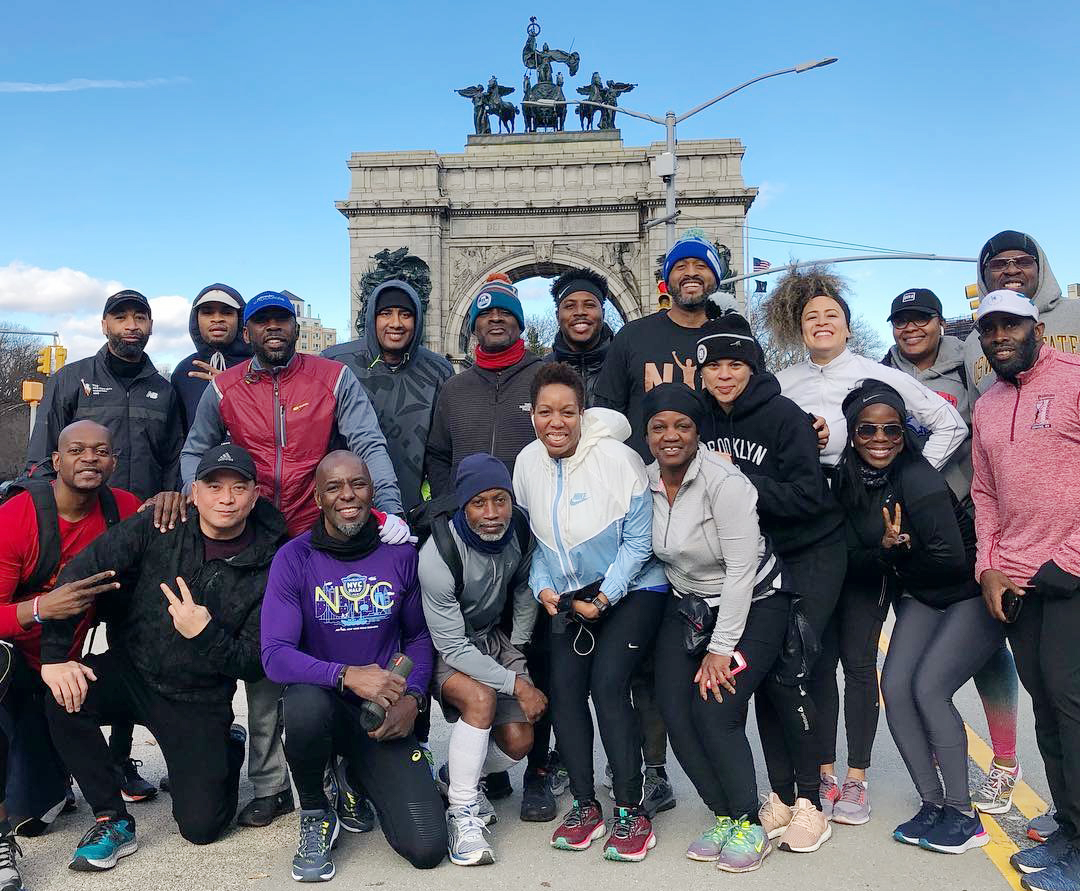Thinker's Notebook
In the Long Run

When my sisters and I were young children, my parents would walk us from our house on Greene Avenue up to Lafayette Avenue to watch the runners as they raced through our neighborhood as part of the New York Marathon. We’d skirt under the caution tape and hold our hands out hoping that one of the runners would smack us five. Some would. Others wouldn’t. What we waited for more than anything was to spot a Black runner. You see, in the 80’s finding a Black runner running the New York Marathon was like trying to find a needle in a haystack. You’d wade through a sea of White runners until you came across one Black runner. And, coming through a Black neighborhood like Clinton Hill (at the time), that runner would receive the biggest cheers.
According to the 2018 National Runner Survey, the biggest boom of new runners are Black men. The National Black Marathoners Association, based in Dallas, has seen their membership triple since 2010, going from 1,200 members to 3,600 members. All over the country, Black running groups like Black Girls Run, Black Men Run, and others are boasting record level memberships. Here in New York City, there are literally dozens of Black running groups that bring together Black men and women from all over the city to unify under one banner, running.
Every Black movement in America comes under a natural scrutiny, because our ingenuity is readily available to become commodified and exploited. Quite often, we give it away. Black expression has historically made other cultures rich. Ask Rock and Roll, and Hip Hop, and fashion and basic popular culture in America. This pivot in the Black community, where the data is showing that more Blacks are running organized races than ever before is actually revealing something far more important. Our generation is becoming more health conscious. So, not only are you seeing more Blacks having regular doctor visits, but you’re also seeing more Blacks taking yoga, and meditating and visiting wellness centers and educating themselves on the holistic strategy of life balance.
In 2017, the global health and wellness economy was estimated at $4.2 trillion. This includes beauty and anti-aging products, fitness products, wellness tourism, mind and body exercise, healthy eating and nutrition as well as weight loss products. That figure is a 12% rise from just two years prior, and it is expected to increase even more over the next five years. A health-conscious lifestyle is an economic boom to the wellness industry. The question is, what can we do to ensure that this rise in health conscious can be of fiscal benefit to the community?
One of the ways to connect the dots is by literally bringing together health and wellness consumers with community-based businesses that specialize in health and wellness services. This week, a company that I founded produced the Black Runners Summit. The Summit is an informative networking event bringing together various Black running groups from all over the city. With the Brooklyn Half Marathon on Saturday, the attention to running in the city is teeming, making this the right time to address this market of Black runners. However, the Summit isn’t only about celebrating the Black running community. It’s also about introducing that community to businesses in our community that are able to cater to their needs as runners and health-conscious consumers. We bought in vendors from the community so that they could introduce their products and services in a way that would hopefully build bonds and create consumer retention, businesses like BK Buddha which is a traveling wellness studio that provides yoga instruction and reiki, and Lenase which is a company that markets CBD oil, the trending product in health and wellness these days. By pairing the consumer which potential community-sourced brands that service their needs, we are looking to meet the potential economic impact of an increased awareness of health and wellness head on, by creating recognition between the consumer and the service early on. And hopefully, as the health consciousness of our community increases, so too will the opportunities of the small businesses that keep our community vibrant.
In the long run, cooperative economics is as healthy to our community as running, and connecting the two concepts might actually help us to achieve the health and wellness we have been seeking for some time.

